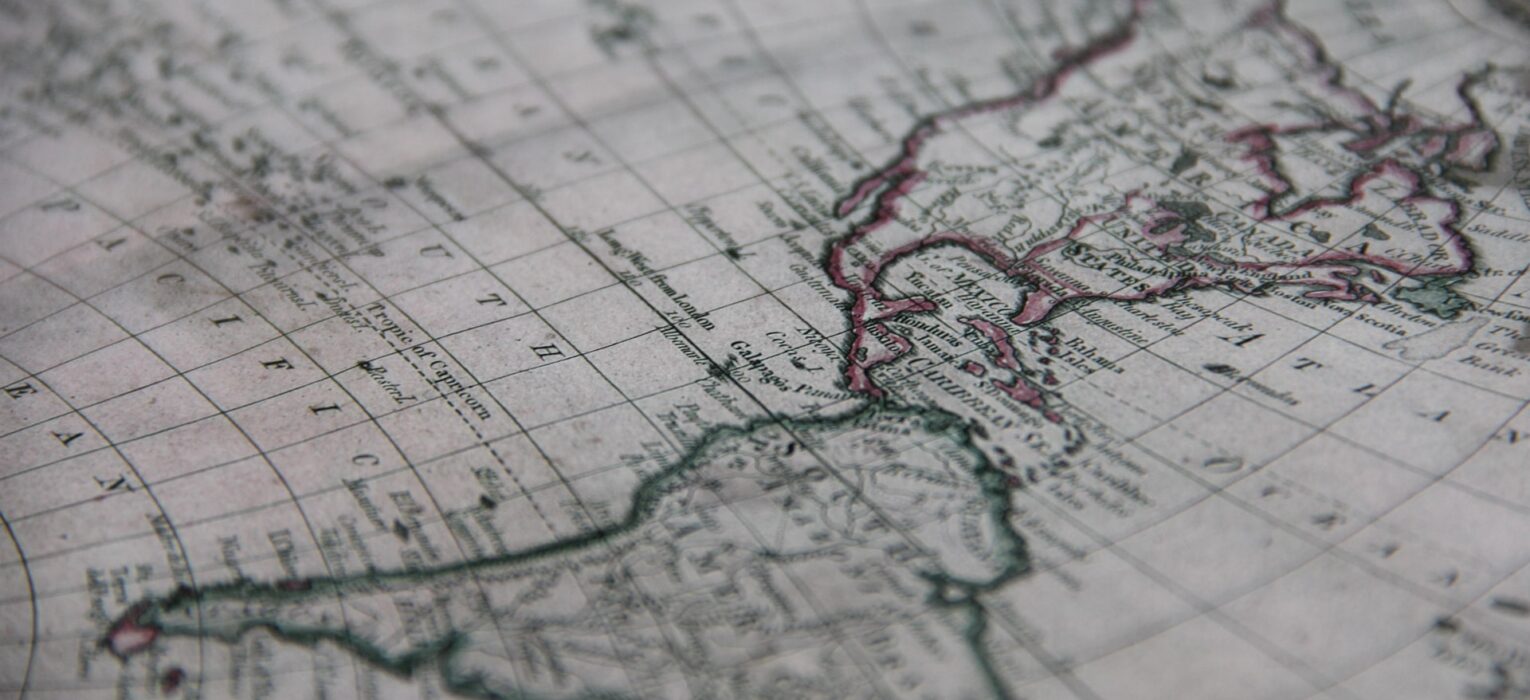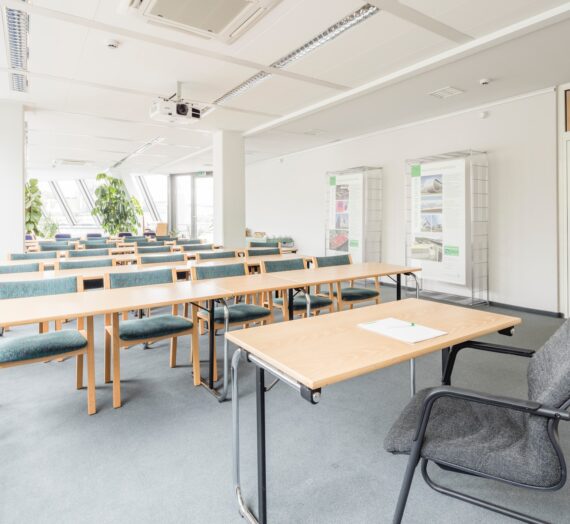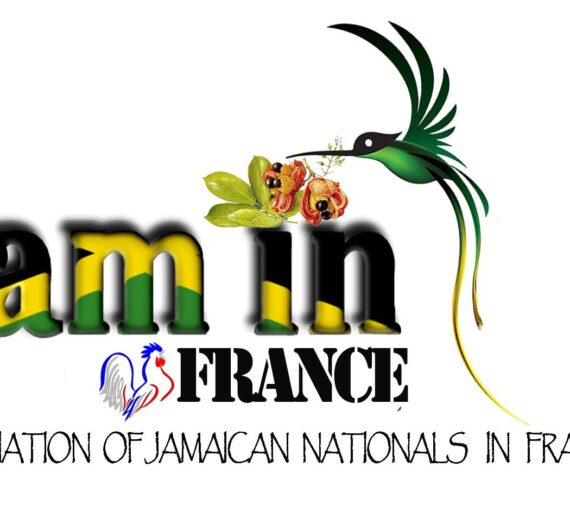Bonne Année and welcome to the first post of 2021! Under normal circumstances we approach a new year with optimism. However, when the previous year was 2020, I can’t fault anybody for approaching 2021 with unease and caution. While I share your hesitation, there are many goals that I hope to manifest on The Jamaican Francophile. And I hope that you keep reading to see them come to fruition.
For the first post of 2021, I thought I would spend some time reflecting on why more Jamaicans don’t study French. It’s no secret that French is not Jamaica’s second language of choice. That honour goes to Spanish. And while I have seen younger generations embracing the idea of studying French – a trend which I hope continues – the vast majority is still Pro-Spanish and French-averse. And today’s post will be focusing on one of the factors that explains why that is; geography. Before I launch into this discussion, a brief disclaimer. While I’m using Spanish for comparison, the intention is not to discount the experiences of people who learn other languages due to personal interest. Including those experiences would detract from the focus of this post; why Jamaicans aren’t readily picking up French, not why Jamaicans are learning other languages.
Assuming that you’ve looked for Jamaica on a map, you would’ve noticed that the island is surrounded by Latin America. Latin America, for the sake of this blog post, being those countries that speak Spanish (and Portuguese to include Brazil). I felt the need to include this caveat because my understanding of Latin America may differ from what other people consider to be Latin America. According to Wikipedia, Latin America includes the French Antilles but excludes the English-speaking Caribbean. Given that that definition of Latin America confuses me, I had to set some parameters. Our location on a map has perpetuated an idea of our relationship with Latin America. The idea that we are a part of Latin America is so prevalent that whether collectively as a region or as individual nations, we are labeled as a part of Latin America. If we’re lucky, we are “Latin America and the Caribbean.” However, it’s not just an idea. Our location has influenced our relationship with Latin America. And that relationship has determined the value we place on Spanish over French.
Let’s examine how geography has contributed to this relationship for a minute. Jamaicans have a history of migrating to Latin American countries for work, such as Cuba, Panama and Costa Rica. And I know certainly that Costa Rica has a small Jamaican community – the descendants of Jamaicans who migrated there in the 20th century. And those descendants have Jamaican surnames and speak Jamaican patois. Geography has also affected the content that we have access to. Spanish has permeated Jamaican media. Our cable providers offer several Spanish or bilingual TV channels. Netflix Jamaica offers Spanish shows and Spanish audio settings. Spanish ads are filtered to us on the Internet. We also have economic relations with these Latin American countries, as well as Spain. Case in point: our tourism sector. Some of our most prominent hotels are Spanish-owned, such as RIU, Decameron and Grand Palladium. In response to these strong economic ties, and arguably a bid to encourage stronger economic ties, Prime Minister Andrew Holness had suggested that Spanish become Jamaica’s second official language in late 2018.
Against that backdrop of Spanish and Latin-American relations, there is this perception that if one learns Spanish, you will therefore have more opportunities to use it. At least, that was the logic presented to me when I was choosing between studying Spanish and French (and chose French). Dear readers, it is my opinion that that logic is painfully flawed. The way I see it, unless you are a part of a community of Spanish speakers, intend to visit a Latin American country or you work in a field that depends on your language skills – such as business, tourism or diplomacy – the opportunities for you to have full use of the Spanish language on Jamaican soil are pretty low. Jamaica is an English-speaking country. Therefore, given that you wouldn’t have much more use for Spanish than you would for French (unless you fall in the above exceptions), what makes Spanish a better language choice than French?
When I said that Jamaica is surrounded by Latin America, I imagine some of you may have pointed out that Haiti is our closest Francophone neighbour, and that the Caribbean is not devoid of French-speaking countries because there’s Martinique, Guadeloupe, French Guiana and Saint Martin. Even so, this introduces the opposite side of the coin – the lack of French influence. There is no need to recount the Haitian Revolution and the aftermath being Haiti’s tumultuous relationship with France. But I invite you to keep in mind that historical context to demonstrate that naming Haiti as our gateway into French culture would be imprecise. Yes, Haiti was colonized by France, speaks French and has some French influence in their culture. However, we know Haiti for Haitian Creole, a French-based creole that’s a standardized language. Haiti, since 1804, has gone on to develop a culture that is unique to them, with little influence from France. My personal opinion is that Haiti would not give an accurate representation of France and French culture. A more accurate representation of French culture would come from those other named countries because they are a part of France. These countries are overseas departments and collectivities of France (départements d’outre-mer et collectivités d’outre-mer). While they may have their local practices, they are also influenced by mainland France. However, the issue lies in the fact that these countries don’t generally have relations within the Caribbean. The majority (if not all) of their political and economic relations are with France and Europe. Therefore, there is little opportunity for them to spread French and French Caribbean culture to the rest of the region. Lest we forget, these places are in the Caribbean, yet one needs a French visa to visit them. And if neither of those arguments have convinced you, let’s talk numbers. I listed five Francophone countries in contrast to nineteen Latin American countries that speak Spanish. Which I believe proves my overall point – there’s significantly less French influence for Jamaicans to latch onto. Meanwhile Spanish language, culture and influence is inherently palpable.
Let’s face facts. We have no significant historical ties with any of the French-speaking countries. Accessing French media is not as easy; we only get one French TV channel – TV5Monde, and since 2019 Jamaican airwaves no longer broadcast Radio France Internationale (RFI). There’s only one Alliance Française in Jamaica, which until last year only served the Kingston Metropolitan Area. And while in the wake of COVID-19 they have been able to offer their services online and serve more people throughout the country, there are still many people who have never heard of the Alliance Française, much less know that there’s one in Jamaica. In light of that, there’s now the perception that French is therefore a more difficult language to learn and has no practical use in our environment. France and the French language look distant. Latin America and the Spanish language look like home.
Geography is by far the greatest factor which has influenced Jamaicans to not study French, but it’s not the only factor. I hope to explore other factors in the coming weeks. Feel free to leave a comment with your views on why more Jamaicans don’t study French.





film makinesi
With the whole thing that seems to be developing throughout this specific subject material, many of your points of view happen to be fairly radical. On the other hand, I appologize, but I do not give credence to your whole plan, all be it refreshing none the less. It would seem to me that your remarks are actually not completely rationalized and in fact you are generally yourself not really completely convinced of your point. In any case I did appreciate looking at it. Milford Mattila
hdfilmsitesi
I would like to thnkx for the efforts you have put in writing this site. I am hoping the same high-grade website post from you in the upcoming as well. In fact your creative writing abilities has inspired me to get my own web site now. Actually the blogging is spreading its wings rapidly. Your write up is a good example of it. Ralph Fredell
yasadisi bahis oyna
May I simply just say what a comfort to discover somebody who truly understands what they are talking about over the internet. You certainly realize how to bring an issue to light and make it important. A lot more people have to look at this and understand this side of your story. I was surprised that you are not more popular because you most certainly possess the gift. Judson Riculfy